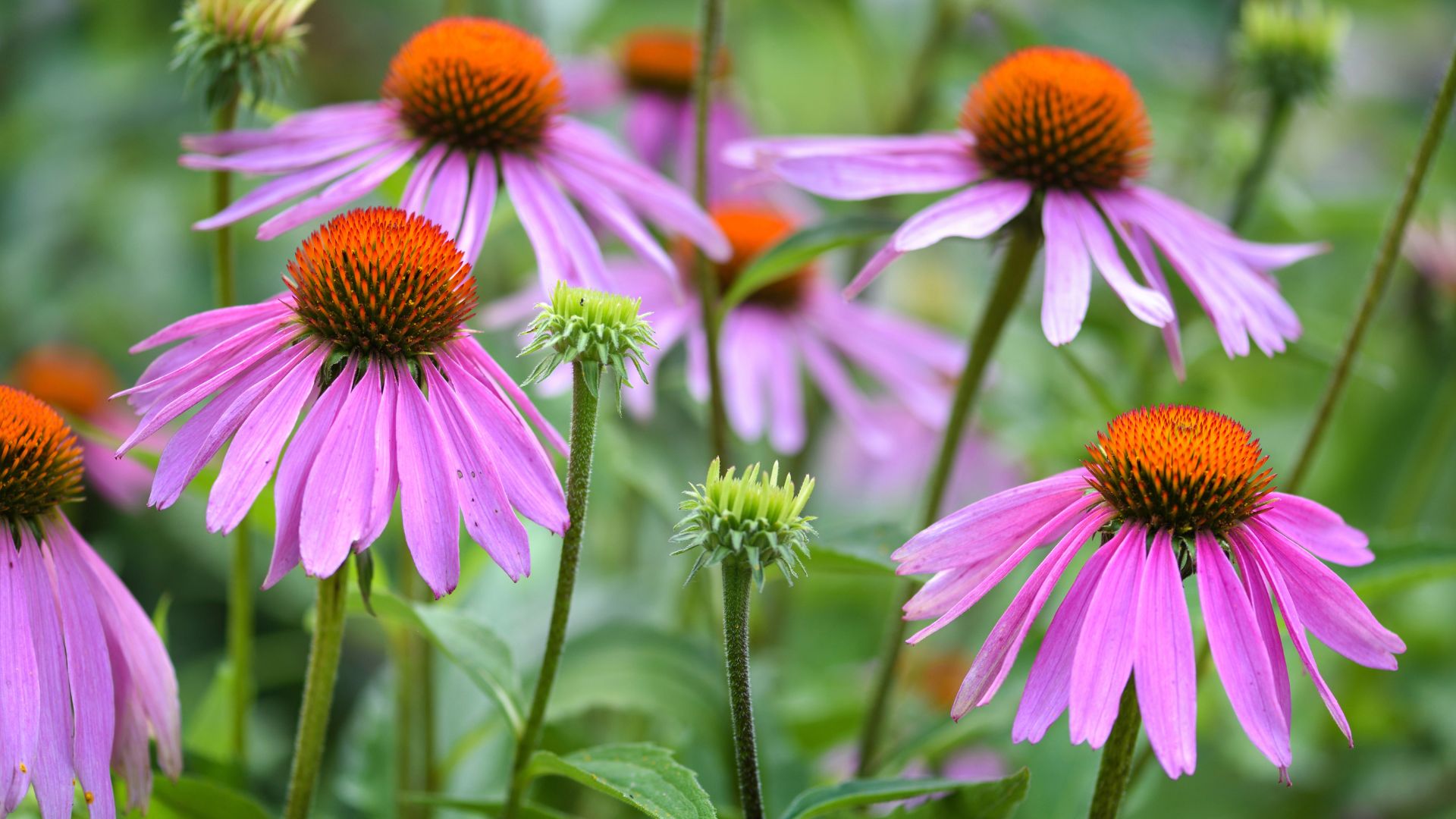
Choosing heat-tolerant plants that can also withstand the cold means you can enjoy seasonal interest and don't have to worry about your garden looking lackluster.
There are plants that like full sun and heat and those that prefer the cold, but plants that can withstand heat and cold are the best option for a lower maintenance garden that won't need constant attention, whilst providing year round interest.
Whether you're a beginner or green-thumbed, to make your journey a little easier, we've created a list of plants — with the help of experts — that are known to handle those hot and sunny summer days, as well as the freezing winter months.
Plants that can withstand heat and cold for continuous seasonal interest
Whether you're looking to boost your wildlife, have some foolproof containers (and these suggestions are essentially foolproof), elevate your garden borders or upgrade your flowerbeds, there's something to suit every need.
Here are 11 plants that can tolerate the heat and cold, as chosen by experts.
1. Coneflowers (echinacea)

If you're looking to grow coneflowers in your backyard, then you've made the right choice. 'Coneflowers are incredibly winter-hardy and happily tolerate hot and dry summer conditions,' says Andrew Gaumond, editorial director and horticulturist at Petal Republic.
'They bloom in an array of bright color tones adding a lovely textural element to flower beds, borders, and container gardens. They do best in well-draining soil bases in open, sunny locations. They'll appreciate a weekly watering during the peak of summer,' Andrew adds.
An added Bonus, Honey and native bees absolutely love the sweet nectar and pollen produced by coneflowers — making them an ideal bloom for your backyard.
Hardiness Zone: 3-9
Soil type: well-drained, loamy soils
Sunlight: 6-8 hours of full sun
2. Daylilies

Daylilies are known to be heat-tolerant perennials, making them the perfect garden plant during warmer seasons. Certain types of daylilies will happily tolerate sub-zero temperatures, with the hardiest blossoms being able to survive temperatures around -25F.
Andrew tells us these, 'heat-tolerant perennials showcase an array of colors and look beautiful in garden beds and borders'. If you're learning more about how to grow daylilies and you want to get the best out of your blooms, the plant expert says you should 'aim to plant in a location in the garden that receives at least six hours of full sun each day in rich and fertile soil'.
Hardiness Zone: 4-9
Soil type: Rich, well-drained soil
Sunlight: 4-6 hours of full sun
3. Catmint
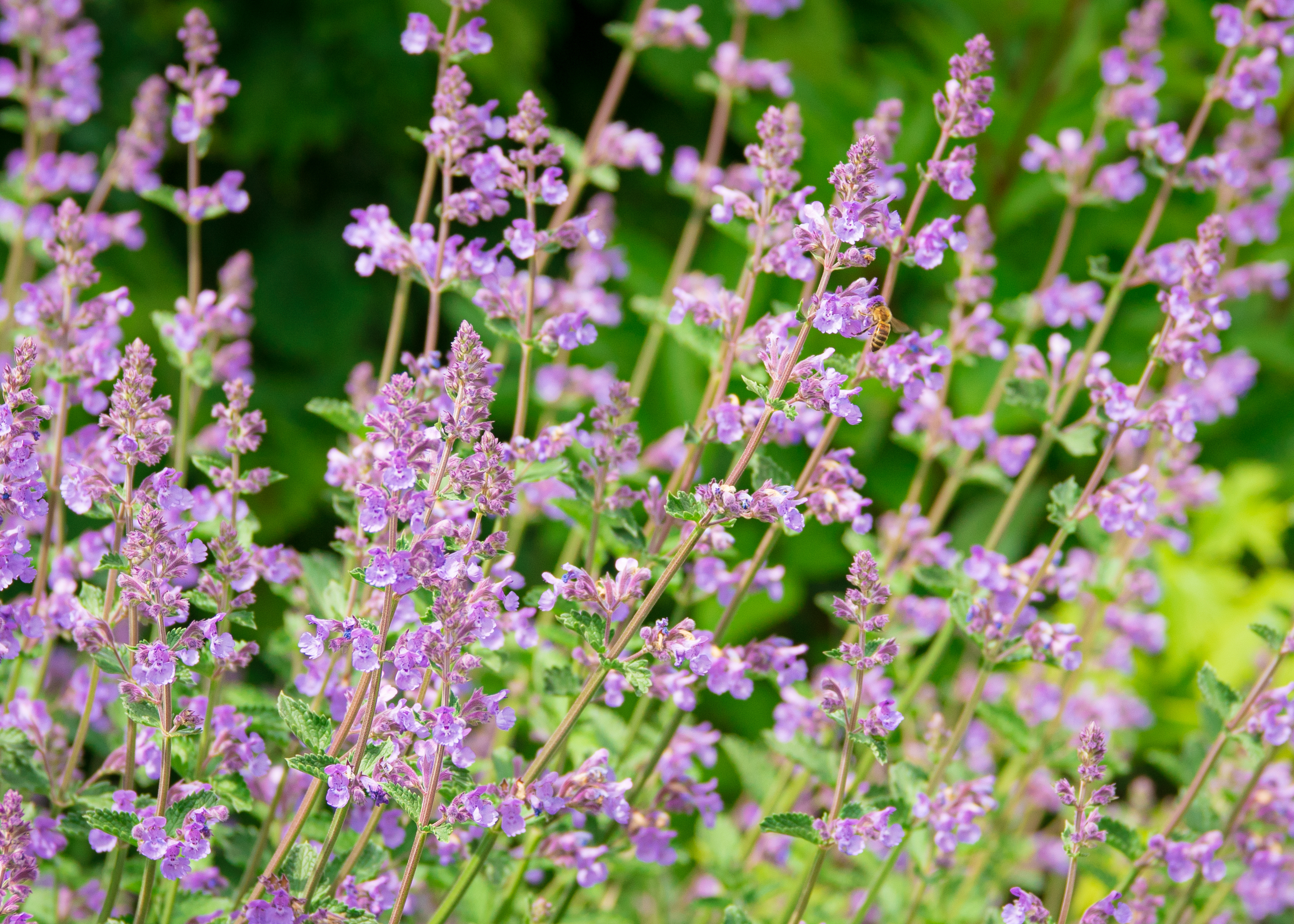
Known to be a great companion plant for roses, catmint will cheerfully shrug off a cold, hard frost as well as the heat.
Andrew says catmint is an easy-to-grow perennial which is known for its aromatic fragrance. 'They'll thrive in various soil bases and benefit from open locations with plenty of sunlight throughout the day. These flowers will flourish throughout summer into fall each year, attracting a host of beneficial pollinators. They're one of the best flowers for bees, and also one of the best flowers for hummingbirds, moths, bees, and butterflies,' he adds.
Hardiness Zone: 3-8
Soil type: Well-drained soil
Sunlight: At least 6 hours of full sun
4. Desert marigold
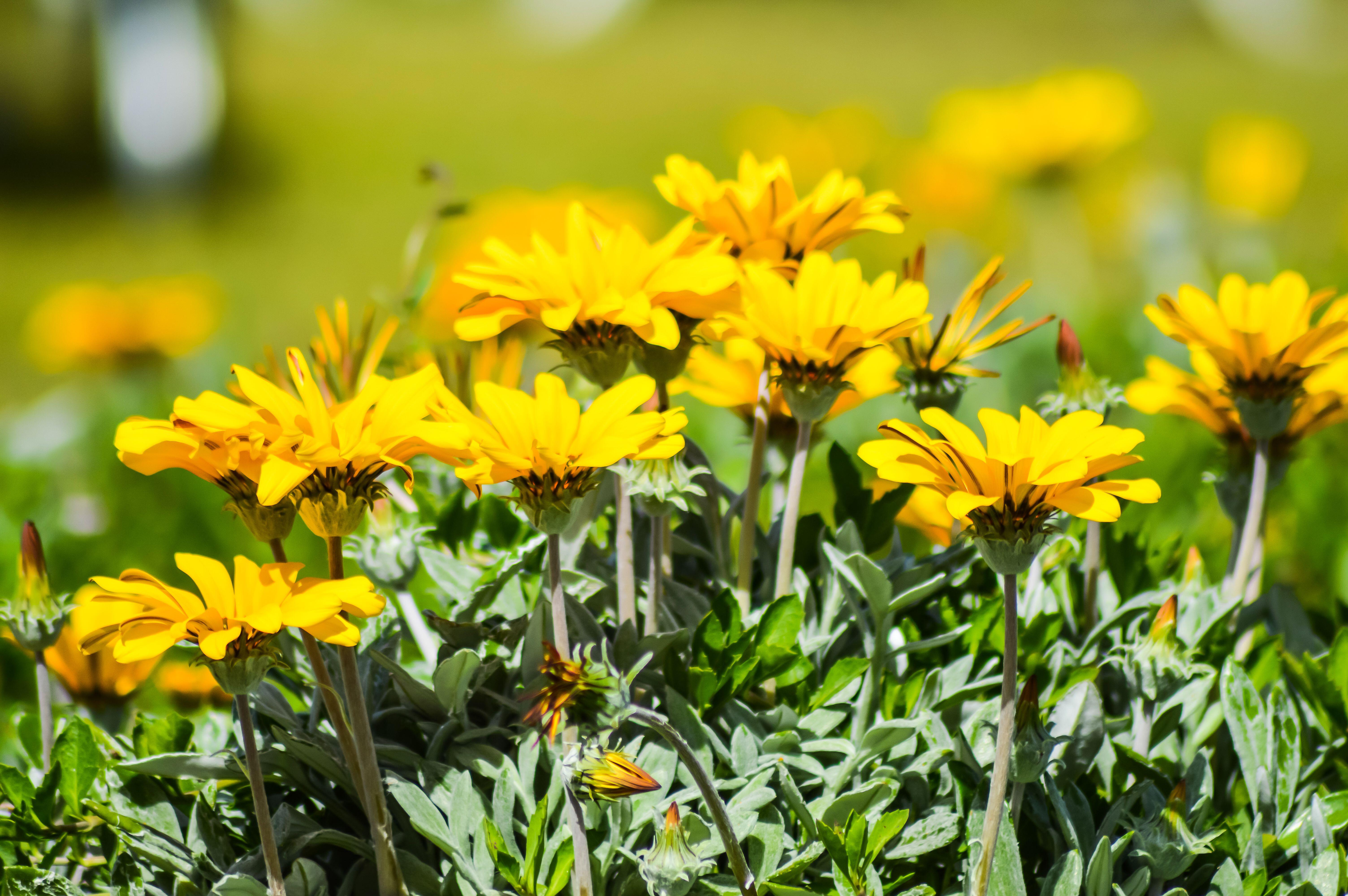
If you're not a pro-gardener and you're wondering what the best flowers for beginner gardeners are, then Marigolds are a great place to start. A pretty wildflower with perky pops of yellow, the Desert marigold (Baileya multiradiata) is a native wildflower that's extremely heat-tolerant and drought-resistant. It's one of the best plants for dry gardens — and the name is a big clue as to why.
Amy Hovis, landscape expert at Eden Garden Design and Owner of Barton Springs Nursery, tells us the desert marigold is a fine choice as it 'produces bright yellow flowers throughout the summer and can handle occasional cold snaps'.
Hardiness Zone: 7-10
Soil type: Well-drained, rocky soil
Sunlight: 6-8 hours of direct sun
5. Mexican bush sage

A hardy but delicate favorite, Mexican Bush Sage (Salvia leucantha) is a tough salvia variety known for its velvety purple fall-blooming flowers. Amy tells us the Mexican Bush Sage 'can tolerate heat and cold, and attracts beneficial garden insects and pollinators to the garden'.
These blooms thrive well in full sun or partial shade and works well on a patio or in container gardens, gravel gardens, and flowerbeds and borders. It's also good for wildlife gardens, as it attracts bees.
Hardiness Zone: 8-10
Soil type: Rich, well-drained soil
Sunlight: 6-8 hours of direct sun
6. Autumn sage

Add color and charm into your backyard with Autumn sage (Salvia greggii). This evergreen shrub can bloom in a range of hues including red, pink, purple, orange and white. 'This perennial plant can handle both the intense heat of summer and occasional cold spells,' says Amy Hovis. It produces vibrant flowers in various colors and attracts hummingbirds and butterflies.'
If you want to add style and nature into your backyard or patio, autumn sage is ideal for planting in sunny borders or walkways.
Hardiness Zone: 6-9
Soil type: Well-drained
Sunlight: At least 6 hours of full sunlight
7. Mexican Honeysuckle

Mexican Honeysuckle (Justicia spicigera) is a perennial shrub that features orange tubular flowers and is known to attract the ever so graceful hummingbird. These blooks 'can tolerate both heat and cold and is a good option for low maintenance gardens,' says Amy.
This popular desert shrub grows and functions best in mixed or groups with other flowering shrubs — this includes salvias and ruellias. The Mexican Honeysuckle is also ideal for container gardening.
Hardiness Zone: 9-11
Soil type: Loose-draining soil
Sunlight: 6-8 hours of direct sun
8. Foxtail fern

Working with a patio or urban space? The foxtail fern is ideal for container gardening to plant in pots on a porch, or in a defined planter.
'Foxtail fern is sculptural, soft and inviting,' says Amy Hovis. 'It stays perky all year long and, in the case of an extreme freeze, no problem - just cut it back to the ground and it will pop right back up in the spring.'
Hardiness Zone: 9-11
Soil type: Well-draining, peaty potting mixture
Sunlight: Full sun to partial shade
9. Texas mountain laurel

If you're looking for the best shrubs for privacy that are so much more than simply plants for screening, then the Texas mountain laurel (Sophora secundiflora) is an ideal fit to keep those nosey neighbors away. Best of all, it's a plant that can withstand heat and cold well.
'A small evergreen tree, the Texas Mountain Laurel is highly drought-tolerant and can handle both heat and cold,' says Amy. 'It produces fragrant purple flowers in the spring and is a popular low-maintenance choice for xeriscapes.'
Hardiness Zone: 7B-11
Soil type: Well drained
Sunlight: 8 hours of full sun
10. Gregg's mistflower
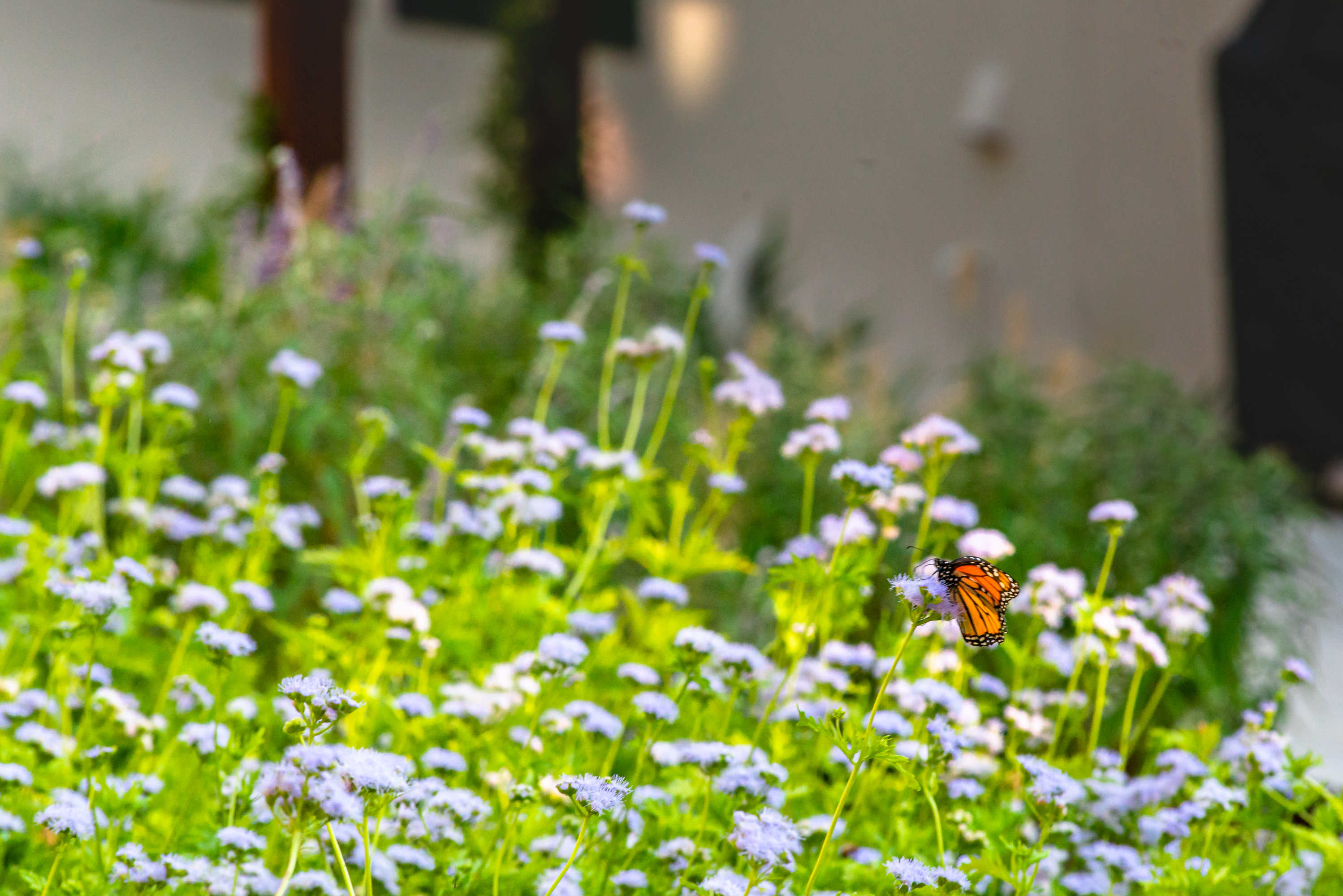
Also known to be one of the best flowers for bees, Gregg's mistflower (Conoclinium greggii) is a flowering perennial that is extremely hardy and drought-tolerant.
Amy saus: 'It's a favorite, as it's a butterfly magnet, and every time I plant it I will have a garden swarming with happy butterflies. It's a sun-loving plant with a delicate purple puff of a bloom. If it dies back in a freeze, you can cut it to the ground and it will grow back in the spring. Planted in masses, it creates a wonderful softness in a landscape — and who doesn't want a ton of butterflies?'
Hardiness Zone: 7a
Soil type: Well-drained
Sunlight: 6 hours or more of direct sunlight
11. Texas redbud
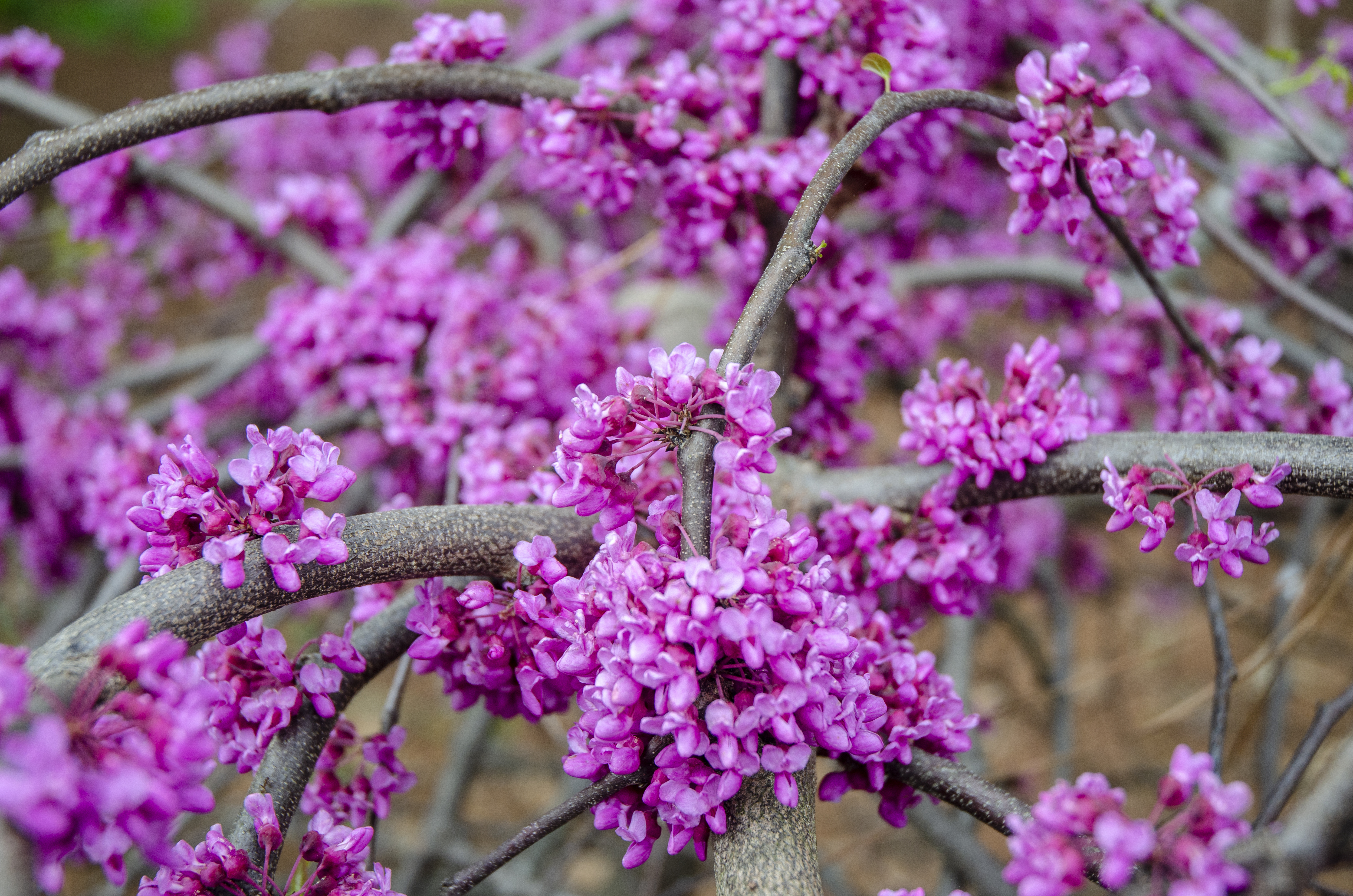
Although not as heat-tolerant as some other plants on the list, the Texas Redbud, as it's known, has the ability to withstand cold snaps in the winter.
It truly offers seasonal interest with beautiful pink flowers in the spring, foliage that turns deep gold and red in the fall, and purple seedpods in the winter. This low-maintenance plant makes a striking addition to flower beds along garden paths on a front entrance.
Hardiness Zone: 6-9
Soil type: Well-drained, loamy soil
Sunlight: 4-6 hours of direct sun
FAQS
What plants can withstand the most heat?
Plants that like full sun and heat are a great addition to spaces that deal with hot climates. So, if you want to add foliage and style — succulent plants such as agave is a great place to start. It's great for all your cactus garden ideas, but it can also withstand and take on the heat more than you know.
How can agave handle the heat? This hardy shrub is known to store moisture in its leaves, allowing them to last throughout sunny days and dry conditions.
What plants can survive the coldest temperature?
From cold-hardy vegetables you can grow in December to winter blooming plants, when the crisp cold air sends its seasons greeting — we'll want to take care of our much loved shrubs. But which plants are easy-to-care for during the cold snap?
There are many varieties to choose from, but there are a fair few which caught my eye for their vigor and hardiness. This includes the ever so abundant peony, cheerful coneflowers, colorful coral bells and last but not least, the curious catmint!







